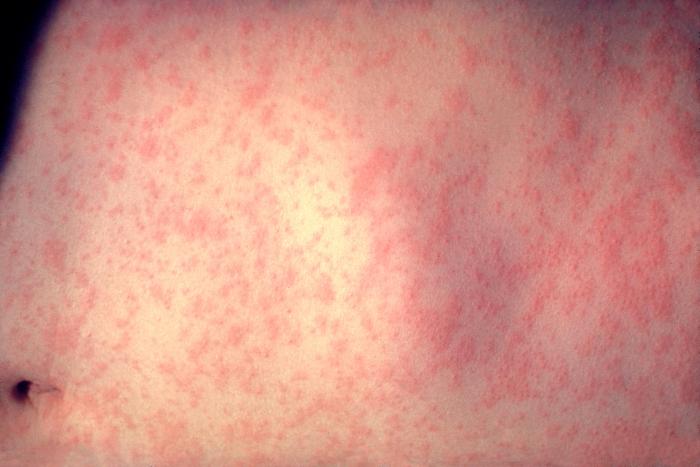Embark on a captivating journey with the R of the MMR Vaccine Crossword, where science and puzzles intertwine. This enigmatic crossword holds the key to understanding the crucial role of the MMR vaccine in safeguarding public health.
Delve into the components, history, and potential risks and benefits of the MMR vaccine. Explore the scientific consensus surrounding the vaccine’s safety and its impact on autism. Discover the recommended vaccination schedule and the ethical considerations surrounding vaccine exemptions.
Measles, Mumps, and Rubella (MMR) Vaccine

The MMR vaccine is a combined vaccine that protects against three viral diseases: measles, mumps, and rubella. The vaccine is highly effective and safe, and it is recommended for all children and adults.
The MMR vaccine contains weakened (attenuated) forms of the measles, mumps, and rubella viruses. These viruses are unable to cause disease, but they do stimulate the body’s immune system to produce antibodies against the viruses.
The MMR vaccine was first developed in the 1960s. It was licensed for use in the United States in 1971. The vaccine has been widely used since then, and it has been shown to be highly effective in preventing measles, mumps, and rubella.
Components of the MMR Vaccine
The MMR vaccine contains three live attenuated viruses:
- Measles virus
- Mumps virus
- Rubella virus
These viruses have been weakened so that they cannot cause disease, but they are still able to stimulate the immune system to produce antibodies against the viruses.
Functions of the MMR Vaccine
The MMR vaccine works by stimulating the immune system to produce antibodies against the measles, mumps, and rubella viruses. These antibodies help to protect the body from infection with these viruses.
The MMR vaccine is highly effective in preventing measles, mumps, and rubella. The vaccine is estimated to be 97% effective in preventing measles, 88% effective in preventing mumps, and 97% effective in preventing rubella.
MMR Vaccine Side Effects

The MMR vaccine is generally safe and well-tolerated. However, some people may experience side effects after receiving the vaccine.
Common Side Effects, The r of the mmr vaccine crossword
The most common side effects of the MMR vaccine include:
- Fever
- Rash
- Swelling of the glands
- Pain at the injection site
These side effects usually occur within 1-2 weeks after receiving the vaccine and typically resolve within a few days.
Rare Side Effects
Rare side effects of the MMR vaccine include:
- Seizures
- Encephalitis (swelling of the brain)
- Guillain-Barré syndrome (a condition that affects the nerves)
- Anaphylaxis (a severe allergic reaction)
These side effects are very rare, occurring in less than 1 in 1 million doses of the vaccine.
MMR Vaccine and Autism
There is no link between the MMR vaccine and autism. This has been proven by numerous studies, including a large study published in the journal Pediatrics in 2013.
The study found that there was no increased risk of autism in children who received the MMR vaccine compared to children who did not receive the vaccine.
The study also found that there was no link between the MMR vaccine and other developmental disorders, such as attention deficit hyperactivity disorder (ADHD) and learning disabilities.
MMR Vaccine Schedule
The MMR vaccine is recommended for all children and adults.
The vaccine is typically given in two doses:
- The first dose is given at 12-15 months of age.
- The second dose is given at 4-6 years of age.
Some adults may also need to receive the MMR vaccine. This includes adults who have not been vaccinated as children, adults who are traveling to countries where measles, mumps, or rubella is common, and adults who are at risk for exposure to these viruses.
MMR Vaccine Exemptions
There are some exemptions to the MMR vaccine. These exemptions include:
- Medical exemptions: These exemptions are for people who have a medical condition that makes it unsafe for them to receive the MMR vaccine.
- Religious exemptions: These exemptions are for people who have a religious objection to the MMR vaccine.
- Philosophical exemptions: These exemptions are for people who have a personal objection to the MMR vaccine.
The number of people who receive exemptions to the MMR vaccine is small. In the United States, less than 1% of children receive exemptions to the MMR vaccine.
MMR Vaccine and Pregnancy
The MMR vaccine is not recommended for women who are pregnant.
The vaccine contains live viruses, which can be harmful to the developing fetus.
Women who are planning to become pregnant should wait at least 4 weeks after receiving the MMR vaccine before trying to conceive.
Women who are pregnant and have been exposed to measles, mumps, or rubella should talk to their doctor about the risks and benefits of receiving the MMR vaccine.
FAQ Compilation: The R Of The Mmr Vaccine Crossword
What does the R in the MMR vaccine stand for?
Rubella
Is the MMR vaccine safe?
Yes, the MMR vaccine is considered safe and effective, with extensive scientific evidence supporting its use.
Can the MMR vaccine cause autism?
No, there is no credible scientific evidence linking the MMR vaccine to autism.